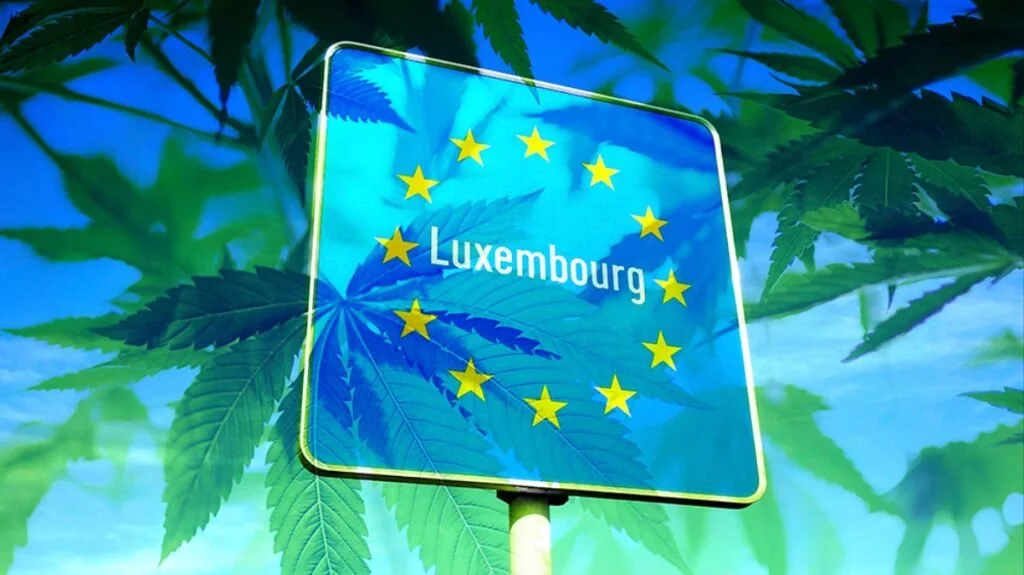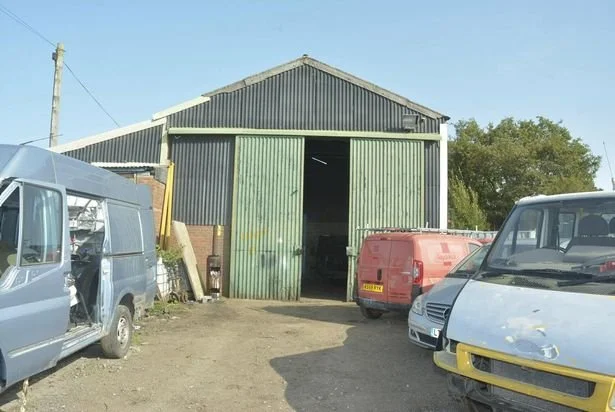Last Week In Weed Issue 38
Published September 6th 2021
In this issue of Last Week in Weed, We’ll be looking at The European country of Luxembourg paying €3m for 30kg of ‘medical cannabis’ Two men tortured over ‘missing cannabis’ in Manchester, and finally, the owner of the Canna Kitchen in Brighton has been cleared of all charges over last years raid for selling low-THC cannabis flowers.
Luxembourg pays €3m for 30kg of ‘medical cannabis’
The world’s richest country per capita recently completed a deal to import 30kg of ‘medical cannabis’ from the German subsidiaries of Canadian powerhouse producers Canopy Growth and Tilray. The deal will see the small landlocked country pay one of the highest premium rates on a product that I have seen so far.
The deal is for 28.5 kg of cannabis with a ratio of THC 18% / CBD ratio <1%, and 2.25 kg of flowers with an equally balanced ratio of THC to CBD. The price per gram when you spend €3m on 30 kilograms works out at an eye-watering €100 a gram.
“It must be a mistake, it’s not possible! Typically, wholesale purchase prices range from $2 to $3 per gram. Then on resale, it is around 7 euros. When I went to the Netherlands, the Bedrocan was sold at around €7.20 per gram. If they buy it at 100 euros per gram, they will not sell it for 10 euros” -Bertrand Rambaud, Francophone Union for cannabinoids in medicine.
The ‘medical cannabis’ industry became ‘legal’ in Luxembourg around the same time it did in the UK, back in 2018. The system is still in its infancy and can only be prescribed for a limited number of conditions such as MS and cancer pain. A June 2021 report found that despite the limitation of qualifying conditions, the rate of consumption tripled in 2020.
Data from the report shows that “doctors prescribed more than 140kg of cannabis for medical use in 2020, which means “more than 600 people were prescribed [for] an average of 40g of medical pot each.” Despite the record-breaking expense the arrival of more flowers into the country will be welcomed by the patients, who have had to deal with ongoing shortages and supply issues since March this year.
The news was met with some skepticism from Luxembourgers who commented on the story on the L’Essentiel newspaper website. With comments including ‘100 euros per gram?! But it’s big nonsense’ ’Luxembourg is known to throw money down the drain’, and ‘There must be an error, or then an intermediary who takes a good commission in the process.’
The hefty price for the world’s richest country feels similar to the common practice of vendors pricing their products to the consumer’s wealth, rather than to the quality of the product. I guess we will have to wait and see how the deal goes and if the countries 700 odd patients are happy about the price tag.
Two men tortured in Manchester over ‘missing cannabis’
The first story that we’ll be looking at this week comes from Manchester, UK. The conclusion of a trial last week has brought some rather gruesome details to light about the treatment of two farm workers involved in a cannabis grow operation in St Helens.
The three defendants, in this case, have admitted charges of ‘false imprisonment’ and ‘causing grievous bodily harm with intent’ for beating and systematically torturing the two cannabis farmworkers. The sustained assault of the two men occurred as a consequence of a crop being stolen from a shipping container that they had recently stored the crop in.
The two men who were involved in growing the crop at a remote site near to the location had also been paid to harvest, trim, and lock the crop in a shipping container on the site. They then went to a local pub before separating for the weekend. When they arrived on Monday to move the crop they realised that they had been burgled.
Assuming that the crop had been stolen by the two men the gang’s leader rang an ‘unidentified man’ who was overheard saying that “You owe us £30,000 now” by one of the victims. This prompted the attendance of the third defendant, who was called in to “threaten the men and use extreme force in order to get [victim 1] and [victim 2] to admit they were involved in the theft.”
The third defendant arrived brandishing, a now known to be imitation gun, and separated the victims from the two co-workers by taking them into the unit. In court one of the original co-workers testified that the third defendant “pointed the gun first to the head of Darren Hall and then Joshua Childs and he told them that if they did not tell him where the drugs were he would shoot them. The men were terrified for their lives, however, they told [the third man] that they did not know anything about the missing cannabis”
The two defendants initially ‘taped up’ the victims but quickly left to find a ‘stronger material.’ When they returned the men were violently and viciously tortured over several hours. The men were hit with a sledgehammer, claw hammer, pickaxe, and a metal wrench during the course of the attack. At one point the third defendant stubbed out a cigarette in an open axe wound of one of the victims.
They were subject to what the court heard described as ‘significant psychological trauma.’ During the attack, they were threatened with a drill, a container of acid, and having their fingers cut off if they didn’t reveal the location of the missing crop.
The barbaric assault only ended when the defendants were satisfied that they didn’t know who took the lost harvest. The two defendants involved in the torture instructed the other two co-workers to help free the men. They were taken back to St Helen before later being taken to hospital, where they remained for several days.
The injuries sustained by victim one were a broken left leg, a broken right forearm, and a multitude of wounds across his entire body. Victim number two was left in a similar state with multiple wounds across his body and a broken leg.
The three defendants that I have intentionally not named in this piece were sentenced last Friday. The ‘third defendant’ was sentenced to 18 years in prison plus five on extended licence for two counts of section 18 wounding, two counts of false imprisonment, and possession of an imitation firearm with intent to cause fear of violence.
The ‘groups leader’ as I have referred to him in this piece was sentenced to 9 years in prison for two counts of false imprisonment and two counts of section 18 wounding, and another co-worker was sentenced to 10 years in prison for two counts of section 18 wounding, two counts of false imprisonment and possession of a firearm.
This case further highlights the urgent need for the immediate descheduling of cannabis and the legitimisation of the already existing community, culture, and craft industry. This group doe not represent your average ‘cannabis dealer’ in the UK. They are criminally minded individuals exploiting the illegality of cannabis.
There are thousands of vendors, dealers, growers, and collectives that may break the law when it comes to cannabis, but they do not break any other laws. There is an exciting, inviting, and ever-growing criminalised cannabis industry here in the UK, it just needs to incubated and protected from the greed of the capitalists and criminal gangs.
Content is taken from articles in The Manchester Evening News and The Liverpool Echo.
Sam Evolution acquired after 2019 raid on The Canna Kitchen inBrighton
In our second story this week, we’ll be looking at the conclusion of the trial of ‘Sam Evolution’ the owner of ‘The Canna Kitchen’, A cannabis-infused restaurant and its sister business ‘Hemp Earth Dispensary’ located in Brighton, UK after it was a raid in March 2019.
The owner of both businesses, Sammy Ben Rabah, was charged with two counts of ‘supplying a class B drug’ in February 2020. The first of its kind UK business was targeted after police saw a rather eye-catching advert for a low-THC ‘spliff rolling competition’ in the Metro newspaper. The contest was to find potential staff that can roll quickly and consistently for £10 an hour to work in the ‘Hemp Earth dispensary.’
Unfortunately for Sammy and his staff, a plain-clothes police officer was in attendance at the competition, which saw more than a dozen wannabe rollers showcase their speed and skills. The officer approached Mr. Rabah, who is now living in Bristol, to ask about the cannabis being rolled on-site.
Advert in the Metro in 2019
Mr. Rabah informed the office that all the ‘hemp’ flower’ was ‘legal’ as it contained less than 0.2 THC – A common and pervasive myth that has led to raids and arrests for dozens of shop owners. Mr. Rabah felt confident that the lab reports and invoices that he had shown the officer would suffice.
After removing several products for testing and discovering ‘low but detectable levels of THC’ the businesses were raided a few weeks later in March 2019. An estimated £22,000 worth of low-THC products were seized during the raids. In the police interview, Mr. Rabah read from a prepared statement and provided ‘no comment’ to other lines of questioning. He was then subsequently released pending further investigation.
“The case is well known throughout the CBD industry due to the prominence of the restaurant and widespread discussion about the legality of ‘hemp’ flower” – Defence counsel Josh Normanton
During the trial, Mr. Rabah used the section 28 defense of the Misuse of Drugs Act 1971. The defense states that a suspect can present the defense if ‘They neither knew, suspected, nor had reason to suspect the existence of some fact that the prosecution is required to prove; for example, that they were in possession of the drug; or, They neither believed, suspected, nor had reason to suspect that the substance in question was a controlled drug’
The legal representative’s form Mr. Rabah successfully used the section 28 defense of MODA despite the police and prosecution service in the case argued that “Ignorance of the law is not a defense.” Ultimately the CPS couldn’t prove the claim that the seized products were in fact cannabis as defined in the Misuse of Drugs Act 1971.
“Ignorance of the law is not a defence. Business owners selling cannabis products have a responsibility to ensure the goods they supply are safe, legal and that unsuspecting customers are not inadvertently buying banned substances, leaving them at risk of harm and potentially prosecution.
“In this case, the illegality of the substances seized was never in dispute and we will continue to vigorously inspect cannabis vendors in the city to ensure they are aware of, and compliant with, the law” – Detective Superintendent Mike Ashcroft
The lease on the building has since elapsed and has since become a popular vegan restaurant. Last week a jury decided the fate of the entrepreneurial businessman. It may have taken a few years to get to trial, but it only took 30 minutes for a jury to ultimately acquit Sammy Ben Rabah on both counts.
“I am very pleased to have cleared my name from any charges of wrongdoing in this case. The heavy-handed police raid was in my view both unjustified and unethical based on prior collaborative commitments made by Sussex Police. It was entirely unnecessary, being a complete waste of public funds for a three-year police operation (Operation Kneecap) and subsequent lengthy crown court trial process”
“If the police had simply honoured the commitments made originally we could have had further dialogue as necessary, establishing which (if any) hemp items needed to be removed from sale. “This would have enabled me to continue with the innovative business we had built on Duke Street; my means to support my young family, and sixteen of my staff could still be employed in the city centre.
“I am pleased that the truth has been revealed finally through the court process, and am grateful to my legal counsel Josh Normanton, the judge and members of the jury for their fair assessment of the case” – Mr. Sammy Ben Rabah
This case should hopefully empower and inspire the multitude of shop owners, vendors, and entrepreneurs that are facing similar legal issues for selling what they genuinely believed to be ‘legal’ products. The successful use of section 28 should also give us hope that eventually one day the war will be over.
Written By Simpa For The Simpa Life




